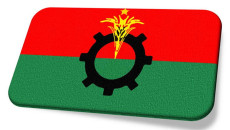
Saleem Samad
07 January, 2024 02:34
Bangladesh goes to polls amid ailing democracy
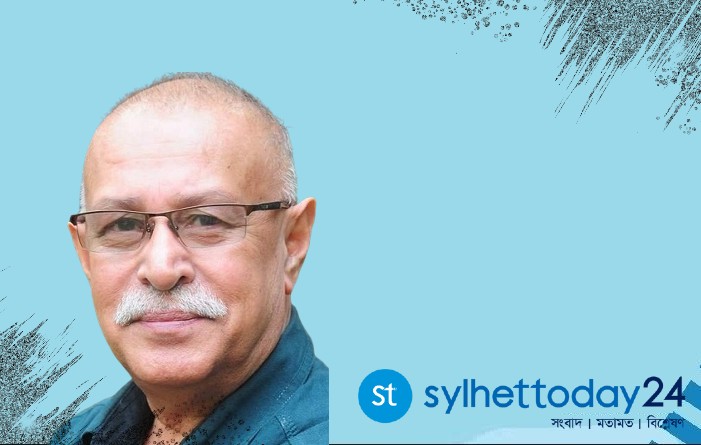
After much international media hype on the Bangladesh election, the day dawned on 7 January.
On the eve of the tense election battle of the ballots, the United Nations Special Rapporteur on the Rights to Freedom of Peaceful Assembly and of Association, Clément Nyaletsossi Voule, called the election environment in Bangladesh “repressive” and said that he is “deeply disturbed”.
The Asian Network for Free Elections (ANFREL) has expressed profound concern over the 12th Parliamentary Elections to ensure free and fair elections in Asia voiced its concern.
ANFREL said they strongly believed that this election is at risk of lacking genuineness and electoral competitiveness, raising serious questions about its adherence to democratic principles and international election standards that assess the legitimacy of the electoral process.
The statement also said ANFREL believes that the risk of lacking genuineness and electoral competitiveness emanates from the observed absence of accountability, fairness, and inclusivity in the electoral processes.
Amnesty issued a 10-point human rights charter and urged all contesting political parties to ensure that the protection and promotion of human rights is a core part of their plans for the country.
The 10 points: Respect and protect freedom of expression and media freedom; Protect the protest; Sustainable solutions to the Rohingya crisis; End impunity for enforced disappearances and extrajudicial executions; Protect women’s rights; Protect the rights of religious minorities and indigenous peoples; Abolish the death penalty; Inclusive, sustainable responses to the climate crisis; End impunity for custodial deaths and torture; and Uphold corporate accountability and labour rights.
The question they are addressing to the wrong group of politicians, and political parties including the governing Awami League. None of them has the mood to listen to the civil society and often blames them for working for the opposition Bangladesh Nationalist Party (BNP) and Islamist party Jamaat-e-Islami.
On the other hand, a senior Indian journalist Bharat Bhusan writes that the staged election could result in political instability in the country. He believes that the national election on January 7 is widely expected to be neither inclusive nor competitive.
Instability, because Bangladesh has fallen into geo-political fault. China, Russia and India want Sheikh Hasina, the president of the Awami League should return to power with an overwhelming majority.
India’s conspicuous silence over the one-sided election has encouraged China and Russia to adopt a similar policy to keep Hasina in power for another term.
China and Russia are singing the same tune, which could be understood to counter the United States, European Union and other West putting pressure on Bangladesh to hold a free, fair and inclusive election.
The election needs no prediction as BBC News dubbed the polls as a ‘one-woman’ election, while the result already looks inevitable, writes Anbarasan Ethirajan.
The predicted win of stage-managed win in the election would be a win for India, Russia and China.
It’s an election of Awami League versus Dummy League. Bangladesh Prime Minister Sheikh Hasina has advised his political hierarchy to nominate ‘dummy’ candidates to ensure that if the contestant application is rejected by a higher court or the election commission, at least there is one standby candidate to fight the ballot.
As the dummy candidates have no political credibility and accountability in their constituency they are known to be troublemakers for the rebel candidates who failed to get nomination from governing Awami League.
The dummy candidates are also a political nuisance in the area for obstructing independent candidates, also creating rowdyism for other party candidates.
There are reports of clashes and attacks on rival candidates in scores of district towns. News of vandalism of polling centres is also pouring. Such incidents give a chilling message of violence during voting. The fear is likely to hinder voters from going to the polling station.
Such fear means the election is not free. The voters will go to the polling station with fear and impending violence among supporters and henchmen of rival candidates.
It is expected that violence would be lowest, as the Awami League has no opposition in the real sense. The independent and rebel candidates are unlikely to pose any threats.
In several seats, the rebel candidates are very influential and have a strong support base in the certain constituency. Most rebel candidates have strong people-to-people contacts.
The parliamentary election as Western and Indian media are agog with stories that the election is one-sided and Sheikh Hasina, the Mother-of-Humanity will be elected for the fifth tenure.
She will surely be included in the Guinness World Records, as the longest-serving woman prime minister in the world.
Well, the call for agitation by the BNP and its allies has fallen flat. As the BNP failed to garner the support of the people to protest the one-sided election.
Agitation in the form of a general strike (hartal) and lockdown to disconnect from the rest of the country could not woo the people to support the anti-government movement.
What did not surprise the political observers was that a significant number of candidates from the ‘loyal opposition’ Jatiya Party, Trinamool BNP and other King’s parties have stepped out of the election race.
More than 225 of the 265 Jatiya Party candidates have pulled out of the race, terming the election “one-sided and staged” and others blamed the non-cooperation of the ruling Awami League.
However, only the contestants who were blessed with a quota of 26 have not pulled out.
It’s too late for the candidates to drop out from the race as the last date for withdrawal has long gone.
The Bangladesh Election Commission has also reiterated that they also envisage holding a free and fair election, but could not assure that the election would be free of violence.
Despite repeated promises by the government and the election commission, it seems neither the West nor the international media are convinced that the election would be free, fair, credible and inclusive.
Meanwhile, foreign election observers will be only allowed to visit polling centres within a range oftwo-hour road drive. The observers can travel to cities and towns where domestic airlines fly.
The election commission has given election observer accreditation cards to 127 foreign observers.
On the other hand, the Ministry of Foreign Ministry, Information and Broadcasting, and Home Affairs have imposed conditions on foreign journalists to issue visas to cover the election. Only 73 journalists were accredited to cover the election and visit polling centres.
The award-winning journalist Nazmul Ahasan in a Twitter (X) posted that foreign journalists granted visas are mostly those based in the India bureau. Some are required to sign agreements mandating that their footage receives official approval before publication and that they will not harm the “national image” or “sentiment.”
Indirectly, the Bangladesh authorities have imposed censorship and restrictions on foreign journalists who are not free to report independently.
Bangladesh, the nation tests an ailing democracy on the ballot.
- Saleem Samad is an award-winning independent journalist based in Bangladesh. A media rights defender with the Reporters Without Borders (@RSF_inter). Recipient of Ashoka Fellowship and Hellman-Hammett Award. He could be reached at saleemsamad@hotmail.com; Twitter: @saleemsamad


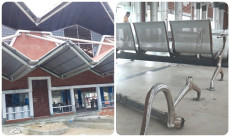
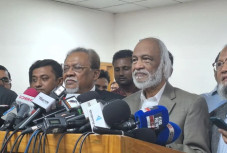
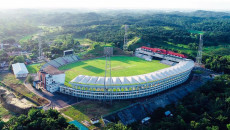
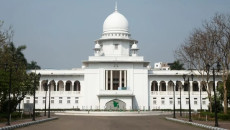
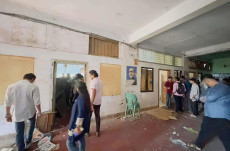
 সিলেট সিপিবি সাধারণ সম্পাদক সুমন ‘আটক’
সিলেট সিপিবি সাধারণ সম্পাদক সুমন ‘আটক’ 




 IT Lab Solutions Ltd.
IT Lab Solutions Ltd.
আপনার মন্তব্য